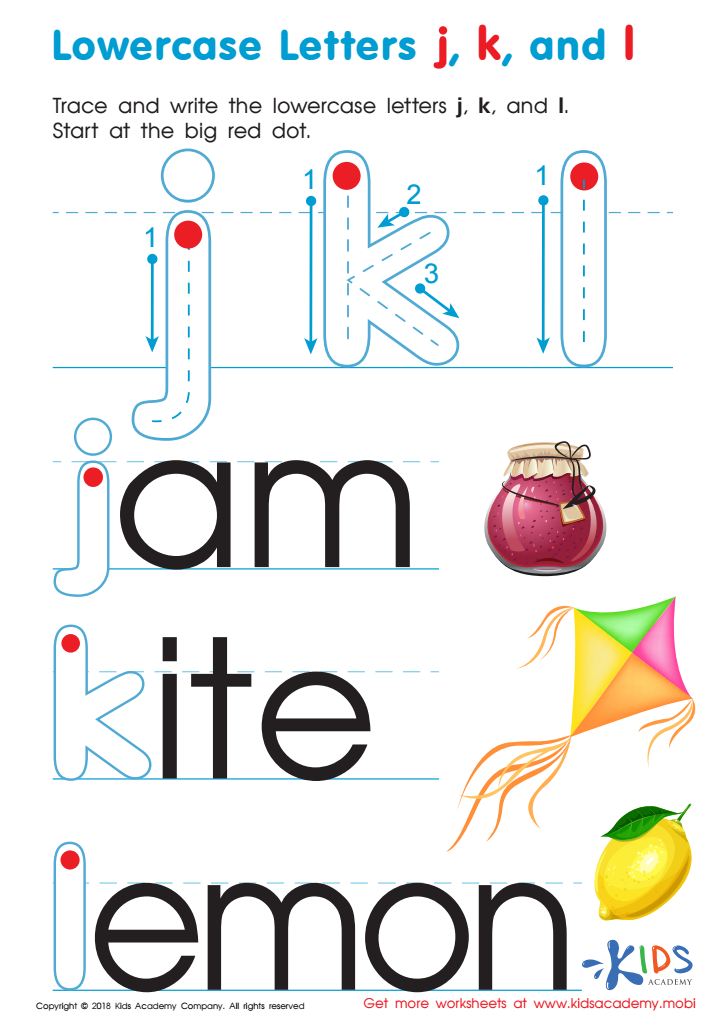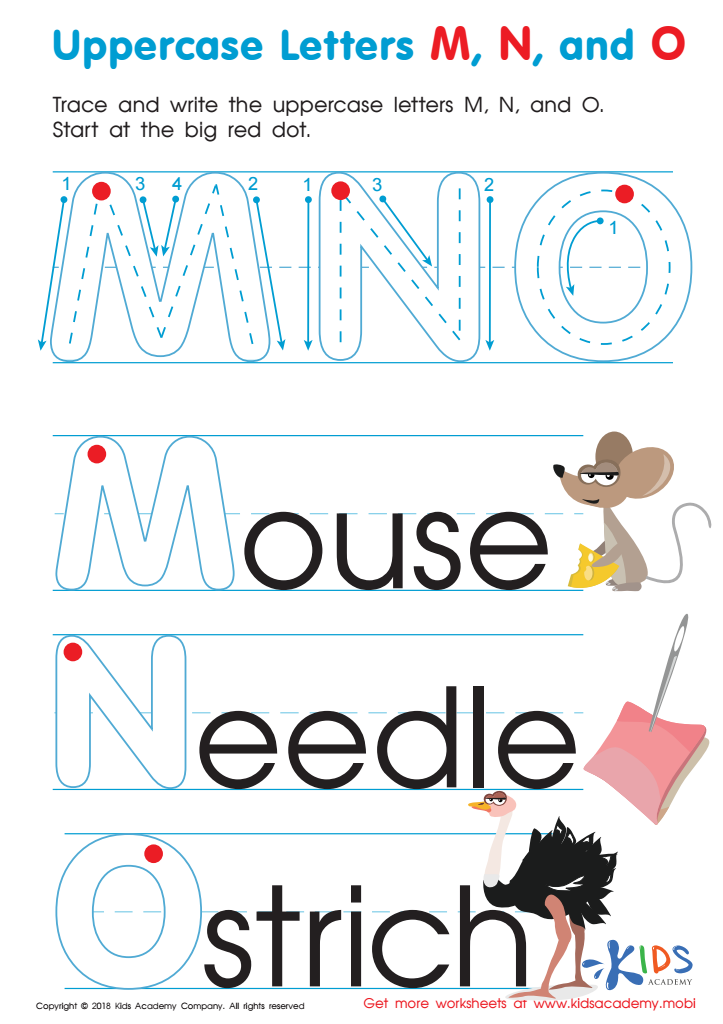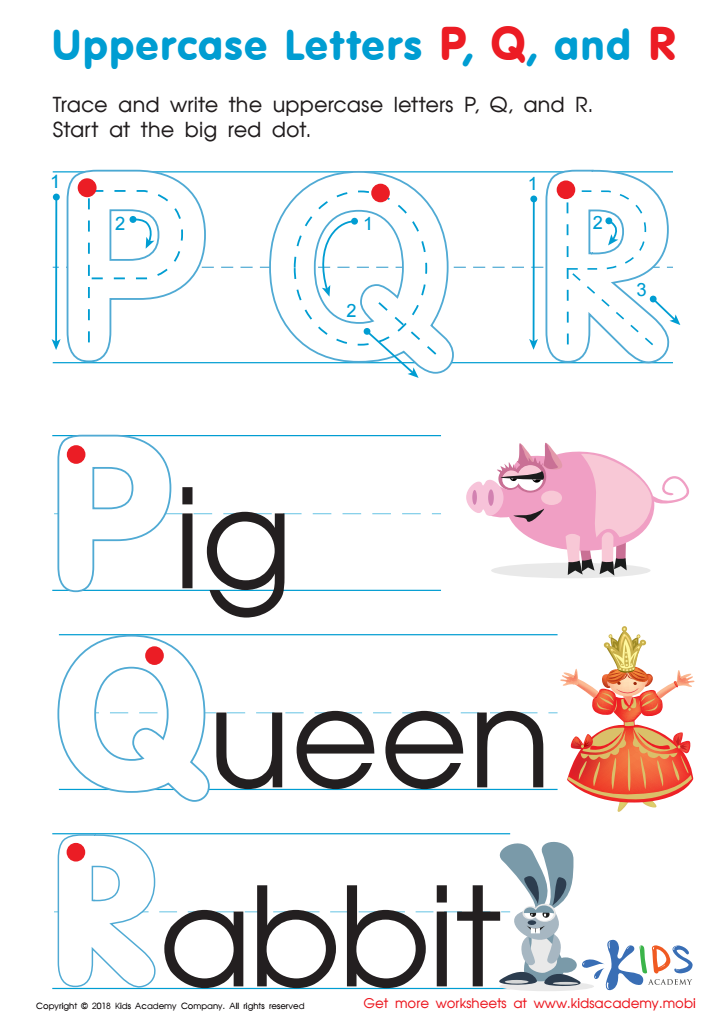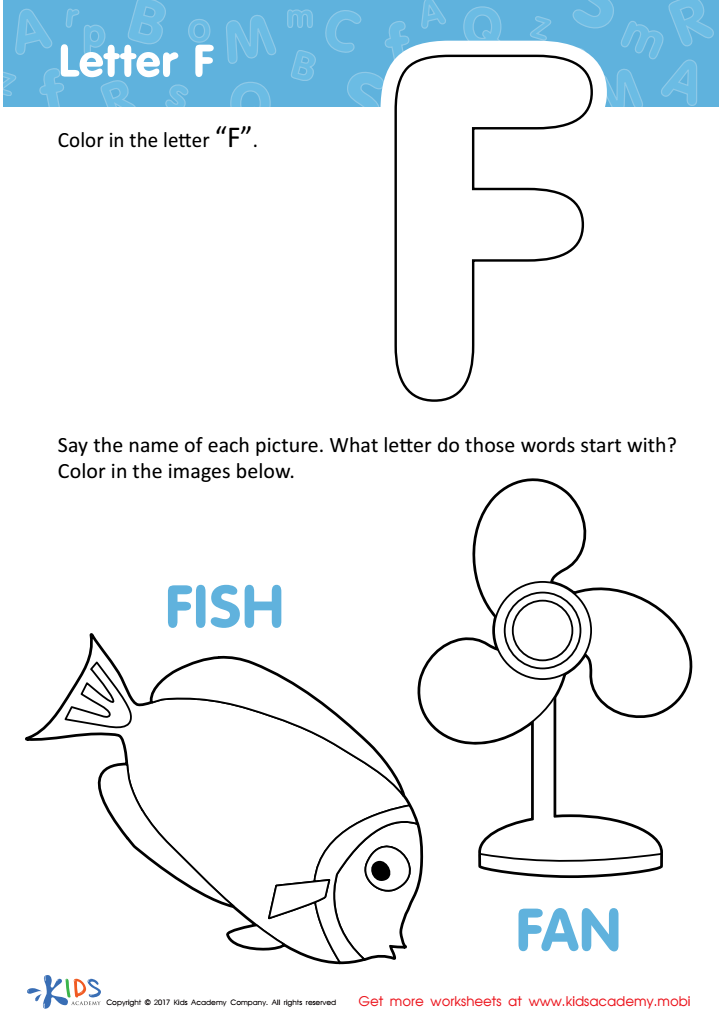Letter Tracing Practice Normal Alphabet Worksheets for Ages 3-7
4 filtered results
-
From - To
Enhance your child’s early literacy skills with our "Letter Tracing Practice Normal Alphabet Worksheets" designed specifically for ages 3-7. At Kids Academy, our engaging worksheets feature clear, easy-to-follow tracing paths that help young learners develop fine motor skills, hand-eye coordination, and letter recognition. Perfect for preschoolers and kindergarteners, these exercises make learning the alphabet fun and interactive. With colorful illustrations and step-by-step instructions, your child will practice writing both uppercase and lowercase letters confidently. Start them on the path to reading and writing success with our expertly crafted letter tracing worksheets!


Lowercase Letters j k l Worksheet


Uppercase Letters M, N, and O Worksheet


Uppercase Letters P, Q, and R Worksheet


Letter F Coloring Sheet
Parents and teachers should care about Letter Tracing Practice for children aged 3-7 because it forms a crucial foundation for early literacy and fine motor skills development. At this age, children are in a critical period for brain development, and engaging them in activities like letter tracing significantly enhances their ability to recognize and write letters, an essential stepping stone to reading and writing proficiencies.
Through repetitive tracing exercises, children develop better hand-eye coordination, control, and muscle memory necessary for writing. This practice not only makes their handwriting more legible but also promotes cognitive skills such as pattern recognition and spatial awareness, contributing to their overall intellectual growth.
Furthermore, letter tracing can enhance a child's concentration and attention to detail, which are pivotal skills for academic success in later years. It offers a structured yet enjoyable way for them to learn the alphabet, creating a positive association with learning tasks. By making these activities engaging, parents and teachers can foster a love for learning, setting the stage for future educational achievements.
Ultimately, investing time and effort in letter tracing practice equips children with the foundational tools they need for literacy, helping them build confidence and preparing them for more advanced educational challenges.

 Assign to My Students
Assign to My Students





.jpg)













